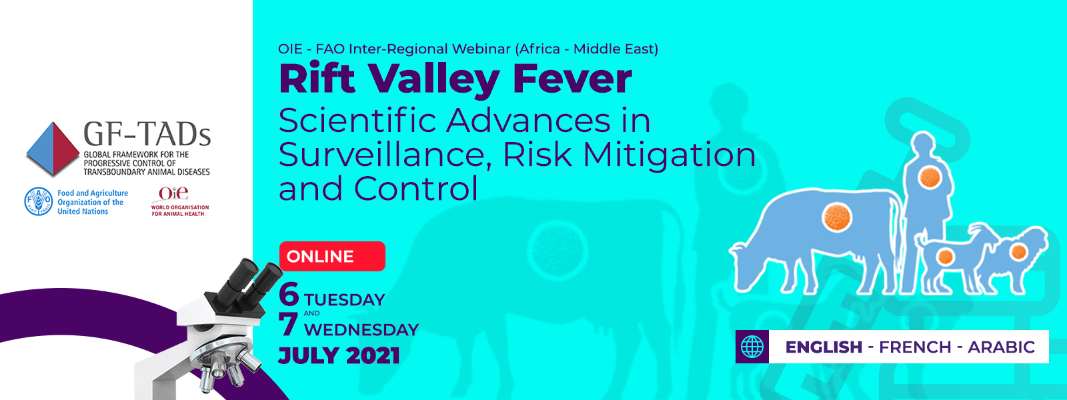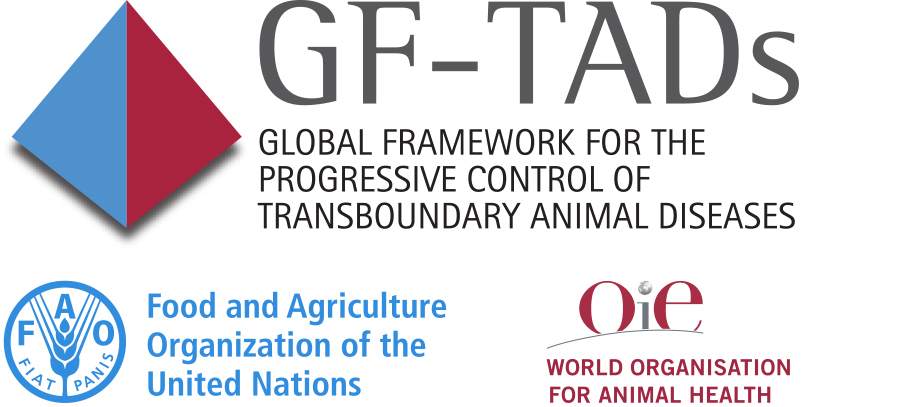Rift Valley fever (RVF) is a viral zoonosis that primarily affects domesticated and wild ruminants and can cause severe disease in humans and animals, posing threats to both human wellbeing, and animal health and welfare. Outbreaks of RVF can have major societal impacts, including significant economic losses and trade reductions. RVF has the propensity for rapid spread irrespective of national borders, causing major disruptions to regional and international trade when it occurs.
First discovered in 1932, the RVF is enzootic in most of the Horn of Africa countries that are
principal exporters of livestock and their products to the Arabian Peninsula, particularly during periods of high demand coinciding with the annual religious occasions. It was detected in the Arabian Peninsula in 2000, marking the first reported occurrence of the disease outside of the African continent, raising concerns for further spread into other countries and regions.
Under the FAO/ OIE Global Framework for the progressive control of Transboundary Animal Diseases (GF-TADs), OIE and FAO are jointly organizing an Inter-Regional (Africa-Middle East) Webinar on “Rift Valley Fever: Scientific Advances in Surveillance, Risk Mitigation and Control” to be held on 6-7 July 2021.
The aims of the webinar are to discuss innovations and technical developments as fundamental enablers of decision-making in prevention, risk management and control of Rift Valley Fever, and to foster integrated approaches that better enhance animal and public health and wellbeing under “One Health” approach. It also aims to promote inter-regional economic prosperity through countries ownership for a win-win countermeasures, in collaboration with relevant partners and stakeholders

